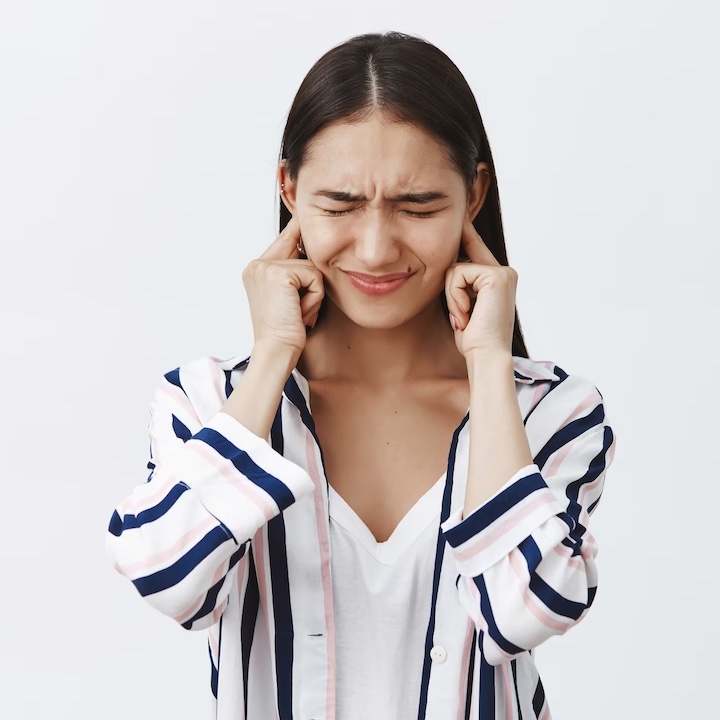Ménière’s disease, a prevalent inner ear condition typically affecting individuals in their 40s and 50s, presents significant challenges relating to balance and hearing capabilities. Vertigo attacks, hearing loss, nausea, and vomiting are common symptoms of this disease. These debilitating episodes can occur unexpectedly with varying frequency.
The pathophysiology is attributed to an overaccumulation of fluid within the inner ear; however, the exact cause remains unknown.
Although Ménière’s disease currently has no cure, several strategies for symptom management include medication during vertigo attacks and lifestyle modifications such as dietary alterations. Alternative treatments like vestibular physiotherapy and psychological therapy also relieve some patients’ symptoms.
Despite these therapeutic options, the impact on day-to-day activities can be severe, necessitating caution, particularly in tasks demanding balance. Consequently, exploring innovative ways to improve the quality of life for individuals living with this challenging condition is essential.
Ménière’s disease is a prevalent inner ear condition primarily affecting individuals in their 40s and 50s. It is characterised by sporadic vertigo attacks and hearing loss, believed to arise from an unexplained fluid accumulation in the inner ear. The precise cause of Ménière’s disease remains unknown but is likely linked to irregularities in ear function or trauma.
Diagnosis involves ruling out other potential causes for these symptoms. As there’s no definitive cure for this ailment, treatments for Ménière’s disease focus on innovative symptom management strategies like vestibular physiotherapy and tailored medication regimes. Advanced interventions such as hearing aids can facilitate recovery, contributing significantly towards maintaining a quality of life despite enduring symptoms of the disease.
Experiencing sudden bouts of vertigo, unsteady balance, and fluctuating hearing loss can be disheartening for those grappling with this inner ear disorder.
The main Ménière’s disease symptoms often present as severe attacks of vertigo interspersed with episodes of hearing loss and tinnitus. The severity of the symptoms varies among individuals and may include feelings of pressure in the affected ear before an attack. Post-attack fatigue is also common.

Photo Credit: Cookie Studio
As the disorder progresses, these symptoms may become constant rather than episodic, potentially worsening hearing loss.
Effective management through innovative strategies such as vestibular physiotherapy and lifestyle modifications can help mitigate these challenges, aiding recovery and enhancing the quality of life for those afflicted by Ménière’s disease.
While the precise triggers remain elusive, fluid build-up in the inner ear is believed to significantly contribute to the onset of this debilitating condition. The root cause of Ménière’s disease remains unknown, but it may be associated with various ear problems, infections or injuries.
This fluid overload within the inner labyrinth disrupts balance and hearing cells, leading to typical manifestations such as vertigo and auditory impairment. Although Ménière’s disease is an inner ear malady most prevalent among individuals in their 40s and 50s, possible causes are still under investigation.
Despite our evolving comprehension of this disorder’s etiology, it remains essential that health professionals innovate effective treatments targeting these specific symptoms to alleviate patient discomfort and improve their quality of life.
Establishing a definitive diagnosis for this inner ear disorder can be challenging, as no specific test is available and the condition’s manifestations closely mimic those of other auditory and balance-related maladies.
When individuals report experiencing the symptoms such as vertigo, tinnitus, or hearing loss, healthcare professionals employ a comprehensive diagnostic approach to rule out other causes. This comprises audiological examinations, balance assessments, and sometimes imaging studies. It is crucial in shaping the course of diagnosis and treatment for Ménière’s disease.
Despite these hurdles in diagnosing Ménière’s disease, advancements in medical technology enable more precise identification of this condition, paving the way for better management strategies to mitigate its impact on an individual’s daily life activities.
Navigating treatment options for this inner ear disorder necessitates a comprehensive understanding of its impacts and the various methods available to manage them.

Photo Credit: Prostooleh
The primary goal is to help ease symptoms, predominantly vertigo and hearing loss, which can be achieved through several strategies:
These treatments aim for symptom relief and improved quality of life. However, innovative solutions are continuously pursued to more effectively treat Ménière’s disease.
In symptom management, lifestyle alterations can be crucial in mitigating the severity and frequency of vertigo attacks associated with this inner ear disorder.
For patients grappling with Ménière’s disease, lifestyle adjustments are an indispensable part of the treatment regime. Addressing dietary habits such as reducing salt intake and avoiding caffeine, alcohol, and nicotine can improve symptoms. However, ignoring these modifications could, conversely, make your symptoms worse.
Furthermore, physical therapy treatments like vestibular physiotherapy significantly enhance vertigo management, contributing to a more effective disease-treated process.
Consistent adherence to these changes often improves prognosis by alleviating distressing symptoms and fostering optimal recovery in individuals afflicted with Ménière’s disease.
Effective management of vertigo attacks, a common symptom in individuals suffering from this inner ear disorder, can significantly enhance the patient’s quality of life and minimize disruption to daily activities. Emphasising innovative approaches such as vestibular physiotherapy offers promising results in managing vertigo attacks.
During episodes of vertigo, patients experience a sudden loss of balance accompanied by nausea and vomiting. These symptoms can be lessened through targeted physical therapy treatments designed to recalibrate the vestibular system.
The post-attack recovery process includes sufficient rest and rehydration while avoiding triggering factors like caffeine and high salt intake. With appropriate intervention strategies, a vertigo attack could become less distressing over time, allowing patients to regain better control over their vertigo symptoms.

Photo Credit: Nikolaydonetsk | Envato
Exploration into the potential benefits of herbal supplements, such as ginkgo biloba, has suggested some benefits in managing vertigo symptoms associated with inner ear disorders. However, its impact on tinnitus remains unclear. Considering Ménière’s disease is a disorder that can affect one’s balance and hearing:
Innovative approaches are desirable but should not replace tried-and-tested treatments. The ultimate goal remains to mitigate the debilitating aspects of the disease and improve the quality of life.
Disruptions to routine tasks and leisure activities are a common consequence of the balance and hearing issues associated with this inner ear disorder. Ménière’s disease affects daily functioning significantly, leading to unpredictable vertigo and varying degrees of hearing loss.

Photo Credit: Sladic, Getty Images
These symptoms can impose substantial challenges in accomplishing day-to-day tasks that rely heavily on maintaining equilibrium or hearing acuity. Mobility, coordination, job performance, social interactions, driving ability, and even basic self-care routines may be compromised due to balance problems inherent in this condition.
Consequently, individuals suffering from this disease often require therapeutic interventions such as vestibular physiotherapy to manage vertigo episodes effectively and regain control over their lives. The impact on daily activities necessitates innovative symptom management and recovery approaches.
Safety concerns, particularly related to driving, are heightened due to the unpredictable nature of vertigo attacks and varying degrees of hearing loss associated with this inner ear disorder.
Ménière’s disease usually manifests through symptoms of vertigo and can significantly impact daily activities. The disease may also affect your balance and hearing, further exacerbating driving and safety concerns.
Notably, the unpredictability of vertigo attacks poses a significant risk while operating vehicles or machinery. Therefore, individuals diagnosed with Ménière’s must consult their healthcare provider regarding their driving ability.
Interventions such as vestibular physiotherapy could be beneficial in managing vertigo symptoms, thus enhancing one’s safety during mobility-related tasks. Understanding these implications is crucial towards fostering innovative approaches for managing this condition effectively.